Public Health in Old Elderly Housing
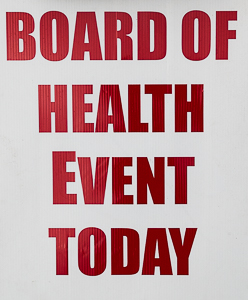
To remedy a problem, we need to identify the source. This applies to matters of health and relationships between landlords and tenants, as well as to relations among tenants.
Some problems seem easy to understand and appear to have easy solutions, while other problems may be invisible but present a serious threat to health and life.
Without a clear understanding of the threat, we tend to get angry and blame people instead of addressing the actual problem.
That's where public health can be useful, using a set of simple strategies. First, identify the source of the problem and measure it to know how much danger is present. Then find ways to separate people from the danger, use mitigation and prevention tools like vaccination to ward off infection; and then apply medical treatments.
Few things can arouse the ire of residents of public and subsidized housing, although there are many problems and people to complain about.
Some of these problems are endemic in old apartment buildings: apartments that are too hot or too cold; hot water that isn't hot; infestations of bedbugs, cockroaches, mice, mold, and more. Some of these problems get a stronger, focused response from management when the health department or the building inspector gets involved.
Issues that can have a more serious impact on the health of residents—such as the seasonal flu or COVID—don't get the same emotional response compared to bedbugs, cockroaches, mice, or unliked neighbors.
We can do serious harm to people by blaming them for having bedbugs or poverty, instead of addressing the bedbug infestation in the apartment building with effective methods. We can expect the landlord and social service agencies to find sources of support for a person who lacks funds or has an emotional or physical challenge.
A person with the flu or COVID is not a bad person because they are sick, but we can expect them to remain isolated and to use masking to protect others. We should all get vaccinated for the flu and COVID to protect ourselves and to help protect others.
Invisible threats to health
Each of these diseases—flu or COVID—which are mainly spread by tiny droplets in the air, can have severe and even deadly impacts on the elderly.
The Peabody Health Department worked with Fairweather management and the Peabody senior center to organize a flu clinic. It was held outside for greater safety despite the chilly morning on September 27, 2022.
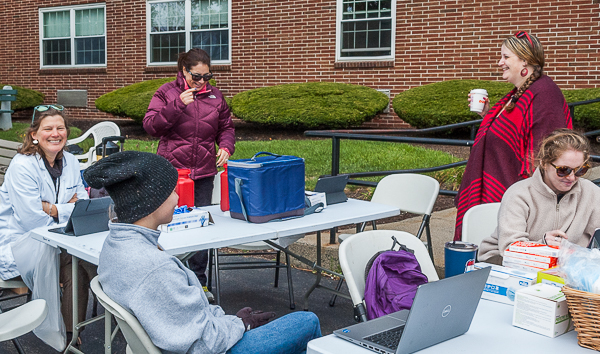
This flu clinic at an elderly residence, Peabody Fairweather, in addition to providing the flu shot, provided free masks and COVID test kits and helped to create a greater awareness of ways for residents to prevent infection.
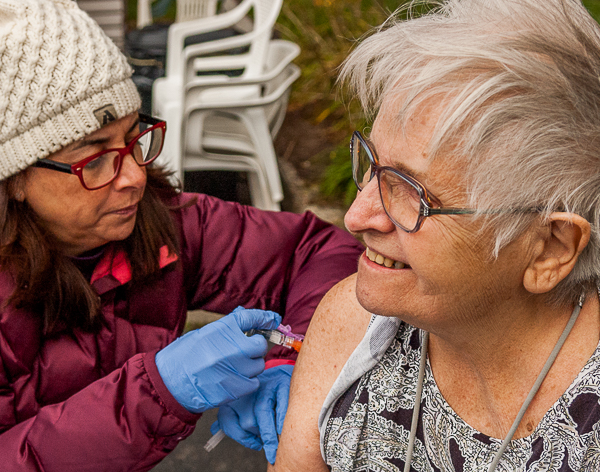
The clinic might have been better attended if the notices had been more widely posted. Two of the management team attended the event and more such engagement with tenants could help build a supportive atmosphere.
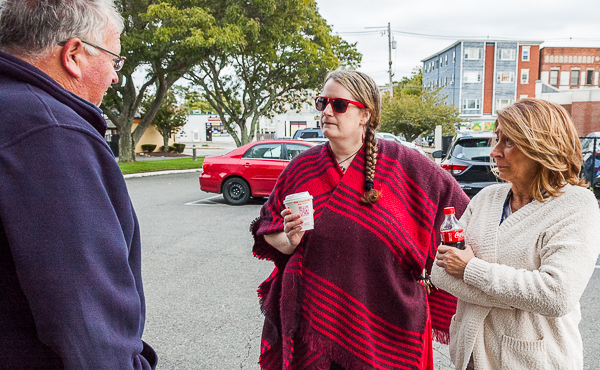
Public health for airborne disease
An important task for public health and individuals is to track the amount of COVID infection locally. A way to do that is demonstrated by weekly updates on the level of COVID particles in wastewater and by the percentage of tests that prove positive for COVID. Each measure helps to determine the level of transmission in a local area.
The Centers for Disease Control and Protection (CDC) has added new surveillance (monitoring) called NOWCAST reporting to track the ever-changing mix of COVID variants. As interpreted by Beth Mole (Ars Technica, 14 October, 2022), two new variants (COVID virus with changes making it more infectious), BQ1 and BQ1.1 doubled in one week, reaching 11.4% of all COVID tests.
We have seen that COVID is capable of spreading rapidly, and these new versions of COVID are capable of taking over, evading our defenses in "breakthrough" infections. Some experts are concerned about a coming Fall and Winter wave of infection. To help protect against infection and severe disease, they recommend vaccines and the new booster.
In a world where most people deny the risk and gather without masking, a new disease version can spread rapidly, and the most vulnerable, including the elderly and disabled, are very much at risk.
Prevention for airborne diseases such as the flu and COVID, includes vaccination, the latest booster, frequent hand cleaning, avoiding indoor gatherings, and the use of high-quality masks such as N95. Rapid at-home tests for COVID can help tell if symptoms are from flu or COVID, and guide steps to limit the spread of COVID.
Take heed, and take care.
Air quality and pollution
Another public health issue affects everyone in Massachusetts, according to a study by Philip J. Landrigan, and David Bellinger, "Air pollution is responsible for premature deaths in every Massachusetts city and town." Pollution caused by burning fossil fuel for energy and transportation contains tiny airborne particles that can enter the lungs and blood, causing disease and even premature death. We have already reported on how this impacted us back in 2018, as part of a response to a planned new fossil fuel electric generator in Peabody. Pollution Harms our Health
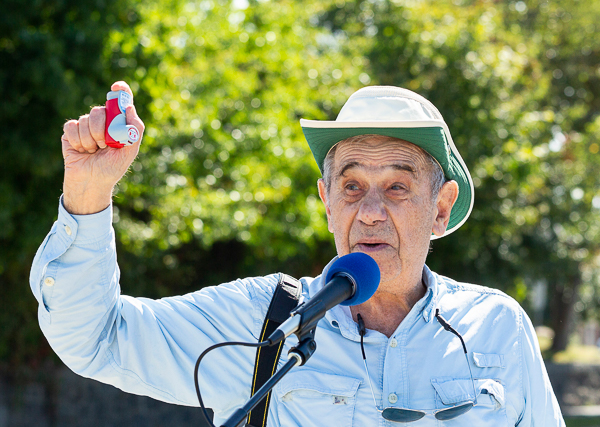
Now we are working with a new coalition, the Clean Power Coalition (Clean Air & Clean Power, Yes. Pollution, No) to develop an educational campaign to inform and empower all people in Peabody and the North Shore about the hazards of airborne PM2.5 (the technical term for tiny harmful particles) pollution; steps to mitigate and protect; and elimination of fossil fuels in transportation and power. Such campaigns would be appropriate for all parts of Massachusetts, with special value for elderly and disabled persons.
How a landlord abuses and angers tenants
When Fairweather tenants receive a hand-delivered landlord's legal notice to quit from a constable (the first step to an eviction), and when that is based on a claim of hundreds or even thousands of dollars of unpaid rent, the reaction is fear, trembling, and anger. Anger because the rent had been paid and because the landlord hadn't even made a phone call about the alleged problem.
Another issue that aroused pushback from Fairweather residents was the action by management to upgrade many apartments to bring them up to the requirements of the Americans with Disability Act (ADA). This was an urgent issue for the landlord, Preservation of Affordable Housing (POAH), who had contracted with HUD for higher subsidies to enable physical maintenance of the old buildings. The change triggered the ADA requirements, essentially to make apartments accessible to a person using a wheelchair. Management notified selected tenants that they were required to accept a relocation while their apartments were being modified. Some tenants were threatened with lease violations. Any relocation is highly stressful, and more so for an elderly person who may have diminished strength and resilience. Targeted tenants were very upset and involved their state legislators, who admonished the landlord about their many poor management practices. Some tenants talked about organizing a tenants' association, but others feared retaliation from management. Tenants reached out to a local human rights group, seeking to develop a constructive way to organize life in public housing.
Blame game
Gossip may point to this tenant or that as the source of the cockroaches or bedbugs, or assert that this tenant "doesn't belong here" or that it would be "better if that tenant were evicted." The target of such accusations may be angered, but more often, intimidated and isolated. And there is no effective protection from such bullying, mobbing, and harassment, despite the obligations of the landlord and management.
“Mobbing”—consists of a group or community harassing and bullying a victim, including to get rid of them. In housing, mobbing can be initiated, condoned, or supported by those in charge.
Nor is there adequate support from the service agencies charged with helping elderly and disabled persons stay out of nursing homes or from becoming homeless.
We tend to focus on the responsibility of the "other" individual when the source of a threat is invisible or not understood. Public health is our best tool for assessing threats that can affect anyone and engaging everyone to protect all. When most people in a community are immunized against a contagious disease, everyone has a better chance to remain healthy. We would be better protected from the flu and COVID if more people were fully vaccinated and boosted. Since COVID sometimes infects despite those precautions, additional steps make good sense. We should avoid indoor gatherings unless everyone has been tested that day and everyone wears an N95-level mask.
The current custom of denying the reality of the continuing danger and significant harm of COVID puts all of us who are elderly and disabled at a disadvantage and we face a very high risk because most people are unaware of or don't care about the danger we all face. The virus doesn't care about our politics or our right to be indifferent to the fate of our neighbor.
The failure of our landlord to enforce the wearing of masks in the public areas of the apartment building shows a callous indifference to the safety of tenants. Their posted notices to require masks are but another example of rules that are not enforced. Worse, almost a year ago I filed a reasonable accommodation request, simply asking the landlord to enforce their own rule to require masking in indoor public areas of the apartment building. Although the landlord "granted" the request, they did nothing to implement an effective action, and this despite very high levels of transmission in our city and county.
Ombuds office now!
Failure of the landlord and management to establish with tenants a community of mutual concern can lead a group of tenants to establish their system of social control. They see themselves as acting for the benefit of all the "good" people and perpetrate bullying to control and exclude the "bad" people. This only becomes more dangerous when the landlord ignores the bullying or even uses bullying tactics to achieve management goals.
In my study of bullying, I have come to understand the dynamics of mobbing, when a leader uses bullying and group dynamics to attack, demean, disrespect, and ultimately get rid of a target. They trample on the rights of their targets. And these dynamics, writ large, can affect whole populations and lead to ethnic cleansing, genocide, the Holocaust, and war waged on civilians with war crimes and crimes against humanity—such as we see in history and on the news every day.
While our efforts through the Stop Bullying Coalition to eliminate bullying and mobbing in multifamily housing may seem like a very small and insignificant arena compared to such evils, it is a stage where we can act to preserve decency, respect, and democracy.
The developments in Fairweather apartments reported here remind us of the urgent need to establish an independent ombuds office. We can't expect our elected representatives to advocate for us all the time, we can urge them to establish an ombuds office to provide effective protection for our rights.
